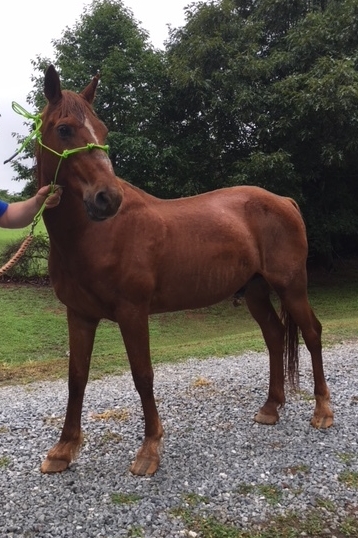Senior Horse Care
Did you know?
The life expectancy of wild horses is 8-14 years, while our domestic horses live well into their 20’s, 30’s and sometimes 40’s, thanks to continued advancement in veterinary medicine.
The senior horse, much like senior people, are more susceptible to illness and disease, requiring more care throughout the year.
Older horses are less able to cope with parasite loads than younger horses, so routine fecals are an essential part of overall health.
Some cases of colic and choke can be prevented by routine veterinary care.
Special Nutritional Needs
Senior horses may not digest nutrients as well as they did when they were younger, therefore we need to ensure they are getting proper nutrition to maintain a healthy weight.
A complete feed and quality forage is recommended.
Feed at least twice daily but more often if possible.
Soaking feed can aid in chewing and digestion, decrease possibility of choke, and increase water consumption.
Hay may need to be replaced with soaked hay pellets/cubes or chopped hay.
Senior feed should be:
Extruded pellets (easier to digest)
Highly palatable and easy to chew
Dust and mold free
High quality fiber and fat sources
Essential minerals and vitamins in the correct ratios
Additional calories may be added with fat supplementation such as vegetable oils, rice bran, or commercial supplements.
Keep in mind that you may need to separate your senior horse at feeding time to ensure they are able to finish their meal without being chased off by other horses.
Monitor body condition and make changes to feed accordingly to maintain a healthy weight. In general, you should be able to feel your horses’ ribs but not see them.
Senior Dental Care
- As your horse ages their teeth start to wear down and uneven wear causes difficult or inefficient chewing of feed and hay/grass. You may see them dropping feed as they chew.
Routine dental care ensures that the food they eat can be broken down properly for use in the body.
Senior horses are susceptible to dental diseases that may include fractured molars and sinus infections.
We recommend dental exams/float every 6 months to prolong dental health and ensure problems do not develop (or are managed properly if they do occur).
Activity and the Retired Horse
Retired horses need light exercise (if able), just like senior people, to maintain mobility, muscle tone and overall body condition.
They enjoy having a job. Most of the retired horse community had a job at some point in their life, so keeping them going with light riding can help prolong their health and mental well being.
Take time to groom and look over your horse each week. This is a great way to spot any injuries, masses (squamous cell carcinoma, melanomas, etc…) and changes in body condition. Grooming also aids in circulation and healthy skin/hair coat.
Hoof Care
Even though a horse maybe “retired”, they still require regular hoof care by a farrier.
Senior horses are prone to certain metabolic diseases which can lead to major issues within the hooves causing lameness. For example: laminitis/founder, unbalanced hoof angles, or recurring abscesses.
By having your farrier routinely examine your horses’ hooves, issues that arise can be dealt with quickly.
The saying “no hoof, no horse” is still true even for older horses. Standing in a field or stall with sore/painful feet will not help them thrive.


